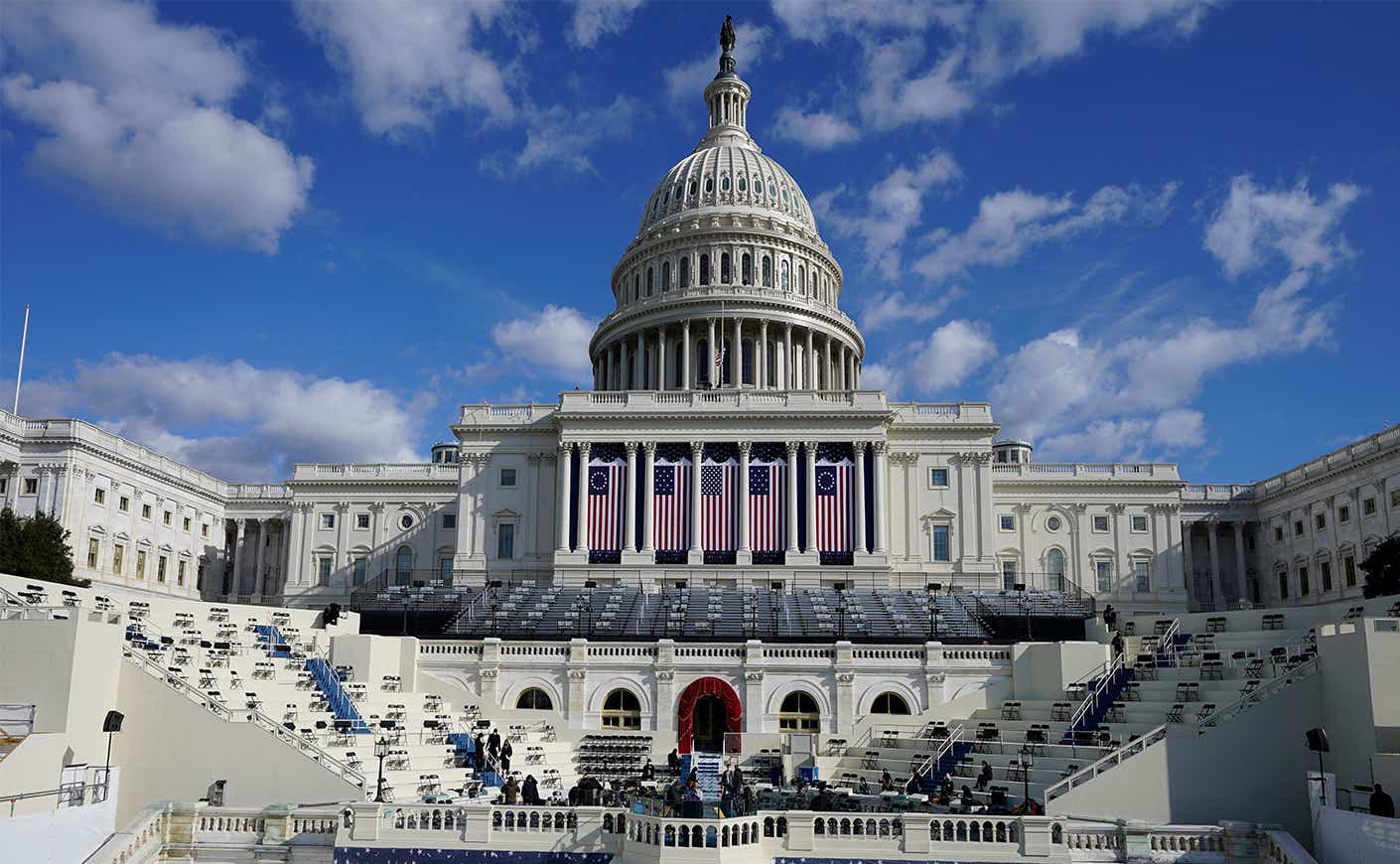President-elect Joe Biden is poised to take office Wednesday in what is considered to be an unprecedented time of division both within Congress and across the nation.
With the theme of “America United,” Biden and Vice President-elect Kamala Harris will be sworn in at a scaled-down event that will be held mostly online due to concerns about the coronavirus pandemic. Plus, law enforcement has shut down much of downtown Washington, D.C. in response to the deadly Capitol attack.
Historian Mike Amezcua, an assistant professor at Georgetown University, said this year’s inauguration represents a “collective sigh of relief,” pointing to the recent unveiling of Biden’s $1.9 trillion coronavirus relief plan aimed at battling the pandemic and jump-starting the economy.
“There is almost like there’s this really large national collective sigh of relief that a president is going to be inaugurated that has promised to create a federal plan to really aggressively take on the Covid-19 pandemic, among many other issues,” he told KCM.
As a historian, Amezcua is going to be paying particularly close attention to Biden’s inaugural address — a tradition that dates back to 1789 after George Washington took the oath of office as the first president of the United States. He said it will be crucial to observe how Biden seeks to reach out to Republicans as well as whether he highlights any potentially meaningful police and immigration reforms.
“I’m going to be really interested in listening to Biden’s speech, in particular how he makes overtures to supporters of Donald Trump, maybe not the most extreme MAGA folks, but the middle-of-the-road Republican voters,” he said.
President Trump, meanwhile, plans to depart D.C. the morning of Biden’s inauguration, marking a break with longstanding tradition. Though Trump eventually conceded the election, his refusal to accept the election results culminated in a deadly Capitol riot that led to a federal investigation and his second impeachment in the House.
But as leading early American historian John Ferling emphasized, Trump’s move isn’t unprecedented — in fact, a handful of presidents in U.S. history haven’t attended the swearing-in ceremony of their replacement and prior to 2021, there have been five instances where living presidents were missing from their successors’ inaugurations.
John Adams was the first U.S. president not to attend his successor’s inauguration, having skipped the 1801 inauguration of Thomas Jefferson after a bitter campaign. Ferling also pointed to Andrew Johnson, a Southern Democrat, who didn’t attend the swearing-in ceremony of Union war hero Ulysses S. Grant in 1869 after Grant supported impeachment efforts against him (Johnson ultimately survived his Senate trial by just one vote).
Ferling said Trump is “probably playing to his base” by not attending Biden’s inauguration. “Realistically, it’s probably not going to make any difference,” he said. “People would like for him to attend to symbolize this peaceful transfer of power, and by attending, it would maybe put to rest all of his claims of the election having been stolen.”
Presidential historian Allan Lichtman similarly predicted that Trump’s decision won’t have any impact on Biden’s attempt to bring the nation together. He said the outgoing president’s presence would have been “an empty gesture anyway,” given his attempts to overturn the election results. Trump’s attacks on this year’s election are also what makes this year’s inauguration especially important, according to Lichtman.
“The inaugural address is an important ritual for binding Americans together and recognizing what is extraordinary about our democracy — a well over 200-year tradition for the peaceful transfer of power,” he said.
As Biden prepares to take over at a perilous moment in history, Trump is leaving office amid an impending Senate trial. Though there are many unknowns about how his trial will play out this time, Lichtman called Trump’s impeachment “consequential” when it comes to holding him accountable for inciting violence at the Capitol.
“Impeachment is very important to make a statement that it is simply not acceptable for an American president to participate in the incitement of violence and the defiling of the U.S. Capitol, the symbol of our democracy,” he said.
Written and reported by Tess Bonn.









